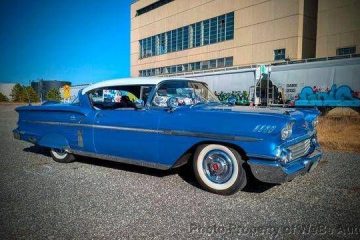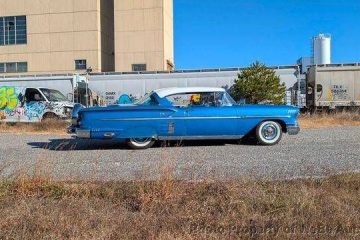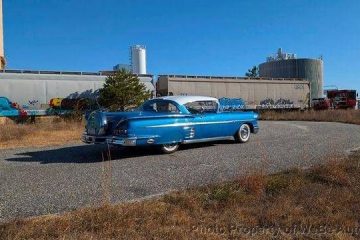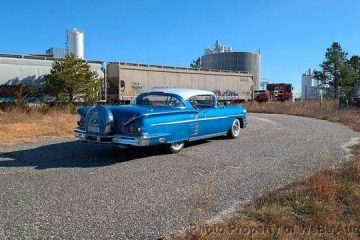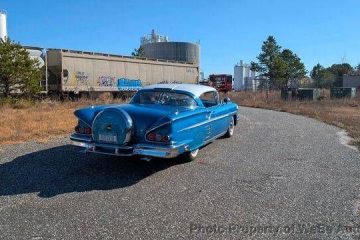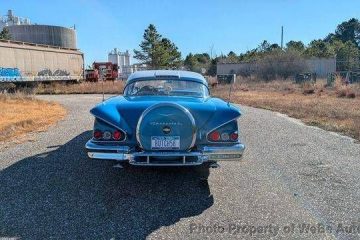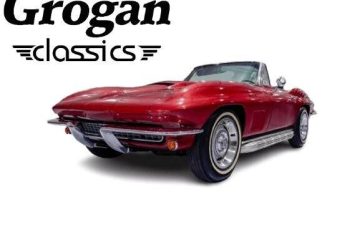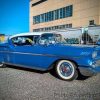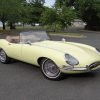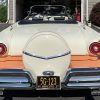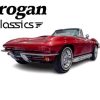1939 MG WA Midnight Blue Drop Head Coupe
Description
1
*One of the rarest of pre-war MGsWA0417
*Coachwork in the style of bolt & Christé, sle
* stored between 2008 and 2014
*Featured in MG Enthusiast magazine
Footnotes
"The WA was undoubtedly the most luxurious MG ever to be produced by and whilst superficially similar to the SA model, the body was far roomier and much better proportioned." – Richard k,The MG Collection.
nched at the 1935 Motor Show, the SA had represented a new departure for MG. The first all-new model to be introduced since the company's acquisition by Motors, it was considerably larger than any previous MG and caused a certain amount of consternation amongst enthusiasts who feared an abandonment of virtues embodied by the marque's nimble sports cars. They need not have worried, for although based on the Wolseley r Six and aimed at the luxury car market, the SA received sufficient input from MG founder and designer r to transform it into a car worthy of the famous octagon badge. Originally of 2,026cc, the overhead-valve Wolseley six had been enlarged to 2,288cc by the time SA production commenced, and was further stretched to 2,322cc in 1937.
For the WA, first seen in the summer of 1938, the engine was enlarged yet again, on this occasion to 2,561cc. Notable as one of the first engines to employ a fully counter-balanced crankshaft, the WA six produced 95.5bhp at 4,400rpm, some 20 horsepower more than the SA unit, which was good enough to propel MG's largest pre-war model to a top speed of around 90mph. On the chassis side, the WA benefited from larger brakes (14" as opposed to the SA's 12" stoppers) and had a rear track wider by more than 3". Like the SA, three body types were offered: a factory-built saloon; a Tickford drophead coupé by ns & s; and a open tourer. By the time production ceased with the outbreak of war in 1939, only 369 W of all types had left the factory.
The rare survivor offered here, chassis number '0417', was completed on 7th February 1939 and exported to Nyasaland (now wi) in southern Africa. By 2000, the MG had made its way to South Africa where it was being offered for sale in essentially rolling chassis form, complete with bonnet, front bulkhead, radiator shell and front wings, but minus any bodywork. The WA was purchased by , registrar of the MG Car Club's SVW gister, and brought back to the UK in December 2001. had intended to restore the WA but his plans changed and in 2007 the car, which had remained in its shipping container, was sold to the current vendor, a lifelong MG enthusiast. Interviewed for MG Enthusiast magazine (spring 2019 edition) he recalled: "The car was 100% complete mechanically, while the chassis had surface rust but no holes at all. I think what must have happened to the bodywork was that termites got to the wood. The front bulkhead, bonnet and front wings were there, but they were steel."
The absence of the original body, and there being no record of its type, meant that the car could be treated as a 'blank canvas', ready to receive coachwork of the owner's choice. He chose to have it bodied as a drophead coupé in the style of bolt & Christé of sle, who had bodied a dozen 'SVW' chassis for J H er's Sportscar AG of Zürich, the Swiss MG importer, two of which were W . To realise his dream, the vendor turned to recognised expert Peter Ratcliffe of marque specialists SVW vices. Peter had restored a genuine er-bodied SA and so had all the templates required to make the body's ash framework, the only modification required being to stretch it at the back to accommodate the WA's wider rear track. Once that had been done, the car was panelled by Geoff , who had previously bodied two of the vendor's other MGs: a P-Type and a VA. Finished in lls- yce Midnight Blue, the result is truly stunning; indeed, the er WA stands close comparison with that paragon of 1930s automotive styling: the -bodied – 540K.
A veteran of many such rebuilds, the vendor overhauled the engine himself, finding that it appeared to have done only some 40,000-or-so miles and was in good condition. The gearbox too was rebuilt, receiving new synchromesh on second, third and top gears, while Peter Ratcliffe supplied a higher-ratio final drive for more relaxed cruising. The dashboard and instruments were present, the former being French polished to match the rest of the interior woodwork, while the latter were sent to a specialist for restoration. l restoration costs were in the region of £75,000. The car returned from the trimmer's on xing Day 2013, but was not finally ready until the following September, since when it has been driven regularly around the UK and successfully completed trips to , France and land. fered with a V5C document.





